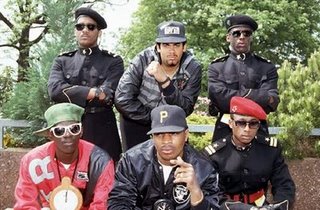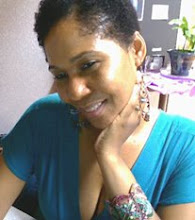 Reading my city’s homicide blog has become a guilty pleasure for me, like collecting Coach bags and surfing for Internet porn. The listings, compiled weekly from the Los Angeles County coroner’s office, are classified according to race and method of murder. Occasionally, the blog provides a snapshot of the victim’s life so as not to reduce him or her to just another faceless statistic. While I sympathize with the families of the departed, I still feel like a Peeping Tom gazing into other people’s pain.
Reading my city’s homicide blog has become a guilty pleasure for me, like collecting Coach bags and surfing for Internet porn. The listings, compiled weekly from the Los Angeles County coroner’s office, are classified according to race and method of murder. Occasionally, the blog provides a snapshot of the victim’s life so as not to reduce him or her to just another faceless statistic. While I sympathize with the families of the departed, I still feel like a Peeping Tom gazing into other people’s pain.
I came across an entry a few days ago that shattered the window of my cyber voyeurism: the murder of 17-year-old Jamiel Shaw. Shaw was a high school MVP who was wooed by Stanford and Rutgers mere days before his death. His story had all the elements of an urban tragedy: a promising football star shot down right before he made it out of the hood, a killing that occurred three doors from his house, a mother on her second tour of duty in Iraq returning home to bury her son. Yet, one detail of this horrific crime infuriated me more than any other: Shaw’s assailants were Hispanic.
It’s hypocritical of me to ruminate on the interracial aspect of this murder because statistics show that 90 percent of black victims are killed by fellow blacks. Would I be as angry if Shaw were a garden-variety gangbanger caught in a hail of Crips gunfire, or if he were a Latino honor student ambushed by black thugs? Sadly, I wouldn’t. Maybe I have bought into the media hype of “ethnic cleansing" in Los Angeles, from the senseless killing of 14-year-old Cheryl Green — a black eighth grader who was gunned down by Hispanic gang members as she played with her friends — to Latino gangs like Florencia 13 and the Avenues who were involved in several high-profile racially motivated homicides. When I’m driving through certain areas of L.A. lined with bodegas y laundromats, I have an illogical fear of being targeted for my skin color. Sometimes I feel like the proverbial white woman who clutches her purse as a black guy walks past her on the sidewalk.
Maybe I’m guilty of racial fealty. Maybe I privilege the preservation and superiority of my own tribe above all others, and Shaw’s death — the good black kid on the road to success — deducts points from the ethnic scoreboard. Maybe I’ve allowed myself to get caught up in a wave of anti-Hispanic hysteria, which pushes the narrative that Latinos are hostile to African-Americans, won’t vote for a black presidential candidate and are taking all the good jobs.
Whatever the case, I've allowed my emotions to get the best of me. Right after I read about the running back’s violent death, I fired off an e-mail to Antonio Villaraigosa, the Latino mayor of Los Angeles. The angry missive began by accusing him of stumping across the country for Hillary Clinton to drum up Hispanic support for her campaign while black-and-brown conflict was escalating in his own backyard, and ended with the assumption that if a rash of black-on-brown crime occurred in Los Angeles, he’d be holding bilingual press conferences weekly. The e-mail was vitriolic, racist and a bit premature. As I sheepishly noted hours after hitting the send button, Mayor Villaraigosa attended a candlelight vigil for Shaw and said his murder may be prosecuted as a hate crime.
I don’t want to become that angry black chick with fears of a brown planet. I don't want to be that dysfunctional diva who panics at the sight of every newly erected bilingual billboard, who reduces every Hispanic – regardless of country of origin – to Mexican, who contemplates calling the cops on the homeowners across the street for blasting merengue from an ancient radio on their back porch, but who tolerates the deafening bass of My Chemical Romance emanating from the apartment of the college students next door, who fears driving south of Wilshire or east of Vermont, and who allows self-imposed perimeters to not only block out “aliens,” but to fence herself in.
Even in the midst of his anguish, Jamiel Shaw Sr. didn’t view his son as the casualty of a brewing race war. "I don't see it as black and brown," he said during an interview. "I see it as a gang problem."
I could take some notes from the elder Shaw and examine my own prejudices. Instead of viewing every injustice through a brown-and-black lens, I need to determine what I can do to promote tolerance and healing.
As of this writing, the homicide blog is featuring a snapshot of Antwan Cole, a 19-year-old black male who “loved people” and “was going places.” The former football player, who had dreams of becoming a sports commentator, was shot at a bus stop after his evening shift. Instead of scanning the ten or eleven paragraphs of his memorial to see if his assailants were Spanish-speaking, I can honor Cole’s life — as well as Shaw’s — by focusing on his legacy.
To donate to the Foundation for Jamiel Shaw II, contact the USC Federal Credit Union, University Park Campus, 1025 W 34th Street, King Hall, 2nd Floor MC 2280, Los Angeles, CA 90089. Phone: (213) 821-7100 and fax: (213) 821-7151.
If you have any information regarding the murder of Jamiel A. Shaw II, please contact the Los Angeles Police Department. The toll-free number is (877) LAWFULL. A reward is being offered.





